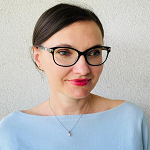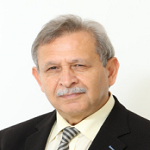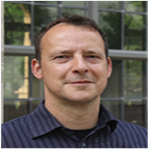Home - KEYNOTE SPEAKERS
Professor Dalgleish was appointed as foundation chair of oncology at St George’s, University of London in 1991. He graduated MBBS at University College, London, in 1974, having done an intercalated BSc in anatomy with Professor J Z Young, FRS. After training as a general physician and specialist medical oncologist he joined Professor Robin Weiss, then head of the Institute of Cancer Research as a clinical research fellow in 1984. His project was on human retroviruses and he was a co-discoverer of the fact that HIV used CD4 as a receptor and senior author of the paper that first linked HIV infection to slim disease in East Africa. In 1987 he became a Medical Research Council clinical research fellow at the Northwick Park Clinical Research Centre. Here he continued his work on HIV pathogenesis and became part of an EU group focused on the correlates of immune protection. During this time, the association with the induction of immune activation and disease was shown to be absolute, correlating with the observations in chimpanzees. Professor Dalgliesh was awarded the Joshua Lederberg Prize in 2012.
Dr. Lishan Su received his PhD degree in Virology from Harvard University and did his post-doctoral fellowship in Immunology at Stanford University. He then worked as a senior scientist in a biotech company SyStemix/Sandoz (now Novartis), focusing on HIV pathogenesis and blood stem cell-based HIV-1 gene therapy in humanized mice and in patients. From 1996 to 2020, Dr. Su was a faculty member in the Lineberger Comprehensive Cancer Center and Professor in the Department of Microbiology & Immunology at University of North Carolina-Chapel Hill. At the Institute of Human Virology of University Of Maryland School Of Medicine, Dr. Lishan Su continues his research program to investigate human immunity and inflammatory diseases, and to develop antibody and cell-based drugs targeting novel immune cells and signaling pathways. The laboratory thus studies how HIV-1 and HBV (Virology) interact with human immune cells to cause inflammatory diseases (Immunology). His group has discovered and focused on the pDC-interferon axis in the immuno-pathogenesis and therapy of chronic HIV infection and other human inflammatory diseases. In addition, they are developing novel drugs including antibodies, CAR-T and therapeutic vaccines (Immunotherapy) to treat human inflammatory diseases including virus infection and cancer.
Bio: Born and raised in Regina, Saskatchewan, Bob was recruited to Idaho State University on a tennis scholarship. Following his college tennis career, he shifted his focus to academics, graduating with a Bachelor of Science and Master of Science in Microbiology from ISU. During his time at ISU, he undertook a research project that focused on studying the humoral immune responses to Blastomyces dermatitidis infections in both dogs and humans. After ISU, Bob relocated to Birmingham to pursue a PhD degree. His thesis project involved dissecting the function of the CD5 receptor on T cells. It was during his PhD studies that he developed a keen interest in immunological pathways involved in animal models of multiple sclerosis (MS) . After completing his PhD, Bob undertook a postdoctoral fellowship at Stanford University. During this period, he initiated translational studies on MS, utilizing both animal models and patient biospecimens. Since moving to Oklahoma City in 2013, he has become an Associate Professor, established his research team at the Oklahoma Medical Research Foundation, where he has trained and graduated PhD students, postdoctoral fellows, and undergraduate and high school students. His team's primary focus is on studying cellular and molecular immunology related to the pathophysiology of MS, neuromyelitis optica (NMO), and the animal model experimental autoimmune encephalomyelitis (EAE). Their research is dedicated to unraveling the biological pathways that contribute to the clinical heterogeneity observed in the MS and NMO populations. Their studies aim to provide insights into clinically relevant biomarkers for these diseases and discover novel therapeutic
Background I received my PhD in cell biology from Toulouse University in 2007. My dissertation work in the M. Wright and then A. Merdes lab was funded, in part, by the Pierre Fabre laboratories and dealt with the characterization of protein complexes involved in microtubules organization during mitosis, in Drosophila. My keen interest in cell cytoskeleton organization led me to join the I. Maridonneau-Parini lab at IPBS, Toulouse, where I conducted work in the characterization of HIV-1 infection of macrophages in terms of fusion into multinucleated giant cells (MGC) and cell migration. In particular, we showed that HIV-1 infection of macrophages and infected MGC display high motility in 3D matrices, favoring virus dissemination (Verollet et al, Blood, 2015). In parallel, I worked on osteoclasts biology, showing the role of Hck in osteoclast migration and bone degradation. In 2012, I was recruited as a permanent researcher by INSERM. As such, I investigated the role of macrophages in HIV-1 pathogenesis and HIV-1/Mtb co-infection (Souriant et al., Cell Reports, 2019; Dupont et al., Elife, 2020; Mascarau et al., J Cell Biol, 2023) as well as the biology of osteoclasts in physiological and pathological contexts (Raynaud-Messina et al., PNAS, 2018). In December 2018, I received my HDR (Habilitation à Diriger de Recherches) diploma from Paul Sabatier University. From 2021, I co-lead the team “Architecture and Dynamics of Phagocytes”, together with Renaud Poincloux, sat IPBS in Toulouse, France. My current projects focus on the cellular and molecular mechanisms of cell-to- cell fusion and tunneling nanotube formation both in physiological and pathological contexts (HIV-1, HIV/TB co-infection, cancer, ageing).

I completed my PhD at Wroclaw Medical University within the Department of Anaesthesiology and Intensive Therapy in 2014. During my research, I focused on coagulation disorders among patients suffering from severe sepsis and septic shock. This work led me to realize that the interactions between the host’s immune system and bacteria are incredibly intricate. Bacteria can play both beneficial and harmful roles, and our current understanding of this phenomenon remains incomplete. These insights significantly influenced my subsequent career. In 2019, I embarked on a post-doctoral adventure at the Laboratory of Microbiome Immunobiology (Institute of Immunology and Experimental Therapy, Polish Academy of Sciences). There, I continue my work as a Research Assistant. Additionally, in 2021, I successfully completed post-diploma studies in ‘Clinical Trials and Biomedical Scientific Research’ at the Medical University of Poznan, Poland. My scientific focus revolves around probiotic bacteria and the microbiome, particularly their interactions with host cells. I explore how these interactions impact inflammatory diseases. I am interested also in the environmental factors that influence bacterial behaviour and adaptability.
Education/training: University of Chemistry and Technology, Prague 2004 Ing. (MSc. Equiv.) in Biochemistry and Biotechnology 2010 Ph.D. in Analytical chemistry, University of Chemistry, Prague Positions: 2006 – Present First Faculty of Medicine, Charles University, Prague, Laboratory of medicinal chemistry - senior researcher and Assistant Professor 2019 – Present University of Chemistry and Technology, Prague, Group of separation methods - senior researcher 2002–2004 Academy of Sciences, Prague, Institute of Organic Chemistry and Biochemistry - researcher Knowledge: Analytical, Bioanalytical, Medicinal, Pharmaceutical Chemistry a Biochemistry Research Interest: Application of nature and synthetic agents for the prevention and alleviation of oncological and neurodegenerative diseases; development of analytical methods for the determination of biomarkers and drugs; DDS. Experimental Skills: Formulation and reformulation of bioactive agents, instrumental analytical techniques (mainly molecular spectroscopy and HPLC analysis) and evaluation of complex balances. Completed and ongoing research: 10 projects of contract and applied research (e.g. vouchers of Prague and Central Bohemian Region; 10-times co-PI) 20022- Present NU22-D-136 (MRI Morphometric and Proteomic Markers Obtained from Brain-Derivated Exosomes before and after SARS-COV-2 Infection; co-PI) Guest Editor: 20020 “Advances of anticancer agents”, special issues of Processes 20022 “Spectroscopic Research and Its Application in Complexes”, special issues of Separations Membership: 2022 – Present Topical Advisory Panel of Internacional Journal Molecular Science Honors: 2008 Votocek scholarship of ICT Prague for the best students Mentoring of students (defended/ongoing): Graduate (0/1) Postgraduate: (2/0) Invited lecture: 2022 Polyphenol Formulations with High Bioactivity 4th Pharmascience Reaserch & Devolopment, 26. únor San Franscisco, CA USA Publications: 60 publications in impacted journals (H index 20, 1139 citations; according to WOS, orcid.org/0000-0002-2215-4890), 3 chapters in the science book, 15 patents (including international), 8 utility models, 10 conference abstracts

Prof. Salem Chouaib, an INSERM Research Director at Institute Gustave Roussy, Paris, France, completed his undergraduate studies at the university Pierre and Marie Curie (Paris VI) and Pasteur Institute (Paris). He received his PhD in immunology, (laboratory of Jean Dausset, Nobel prize in medicine) in 1983 and his higher doctorate (doctorat d etat es sciences) in 1986 from the same university. He joined the Memorial Sloan Kettering Cancer Center in New York where he undertook a post-doctoral training in Human Immunogenetics Laboratory. In 1986, he was appointed as research associate at the French National Institute of Health and Biomedical Research (INSERM) and joined the tumor biology department at the Institut Gustave Roussy. For more than twenty years, he was leading an INSERM Research Unit (tumor immunology). His laboratory focused on the investigation of the functional cross talk between cytotoxic cells and tumor targets in the context of tumor microenvironment complexity and plasticity. His research was constantly directed at impulsing the transfer of fundamental concepts in clinical application in particular in the field of cancer vaccine and cancer immunotherapy.

Professor for Molecular Microbiology and Infection Immunology Friedrich-Alexander Universität Erlangen-Nürnberg (FAU) and Universitätsklinikum Erlangen (UKER) Mikrobiologisches Institut - Klinische Mikrobiologie, Immunologie und Hygiene Wasserturmstr. 3-5, 91054 Erlangen, Germany Tel: +49-9131-853 3644 Fax: +49-9131-853 2573 Email: jochen.mattner@uk-erlangen.de Education and Appointment 1995 - 2001 Studies of Human Medicine, FAU Erlangen-Nürnberg 1998 - 2001 FMGEMS/USMLE (USA) 1998 - 2001 MD thesis („summa cum laude“) in Immunology/Microbiology, FAU, UKER 2001 - 2003 PostDoc, Institute of Clinical Microbiology, Immunology and Hygiene, UKER & FAU 2004 - 2006 PostDoc, Department of Pathology, University of Chicago, USA 2006 - 2007 Research Assistant Professor, Department of Pathology, University of Chicago, USA 2008 - 2010 Assistant Professor (tenure track), Division of Immunobiology, Cincinnati Children`s Hospital Medical Center, USA 2010 - 2014 Adjunct Faculty Appointment, Division of Immunobiology, Cincinnati Children`s Hospital Medical Center, USA 2010 - today Professor for Molecular Microbiology and Infection Immunology, Institute of Clinical Microbiology, Immunology and Hygiene, UKER & FAU Specialty and Research Field of Interest Immune-mediated, inflammatory and infectious diseases; extracellular vesicles; (immune-) metabolism; intestinal microbiota; host-microbe interactions; mucosal vaccination Activities in the Research System Associate Editor (T cell biology, vaccines & molecular therapeutics) Frontiers in Immunology Editorial board member Cellular and Molecular Immunology Organisation of Sino-Germany Symposia on Glyco-Immunology since 2023 Funding Cancer Research Institute (CRI), DFG, Lupus Research Institute (LRI), NIH/NIDDK Awards AAI (American Association of Immunologists) young faculty award (2007) DGfI (German Society for Immunology) Fritz - und Ursula - Melchers award (2008)